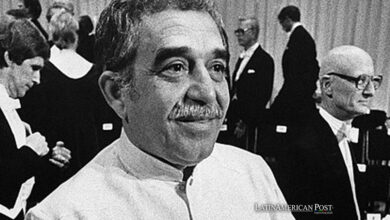Venezuela: How much can Cuba lose with the political crisis in the Bolivarian country?
Listen this article
Chavist government's overthrowing in Venezuela would be a cataclysm for the island, since the Cuban government has been the main ally of the Venezuelan regime

The auguries that reverberate after the new political crisis in Venezuela once again put the Cuban government on alert, which once again has maintained its firm support for Nicolás Maduro. It is necessary to emphasize that the multidimensional crisis in Venezuela is not a new situation, but the recent pressure measures against Nicolás Maduro, coming from the long-lasting Venezuelan opposition for years, has awakened a new social upheaval in Venezuela and in the world. These measures are supported by most of the international political community and mainly supported by the United States's government and its president Donald Trump, who for some reason presided over the global support chain for the liberation of Venezuela from the totalitarian Chavez regime.
Leer en español: Venezuela: ¿qué tanto puede llegar a perder Cuba con la crisis política del país bolivariano?
Although the end of Chavism would mean a radical transition towards better policies for the economic recovery of Venezuela and, most importantly, the salvation of Venezuelans lives together with the improvement of the life quality, there are also nations on the other side of the scale. Therefore, these would be fully affected by the possible loss of Chavism's mandatory control, which for two decades quietly implanted a series of social and economic policies with a totalitarian ideological charge. Cuba would be the main affected.
How strong is the Venezuela – Cuba alliance?
According to the official website of the Cuban embassy in Venezuela, in 1974 Cuba and Venezuela decreed relations. However, it was not until 2004 that both countries formalized a strong cohesion with the Bolivarian Alliance for the Peoples of Our America (ALBA-TCP), an organization in which Venezuela and Cuba played a leading role in promoting commercialization and economic agreements between some Latin American countries attached.
The discursive foundation of the governments of Venezuela and Cuba posed the economic independence of powerful countries such as the United States. However, within the pretense of detaching from the global market, both countries became dependent on each other, more than any other commercial relationship between Latin American countries. At first, Venezuela as the greatest guarantor of economic stability for Cuba, since the Chávez government became the main ally to take Cuba out of the Special Period.
You may be interested in reading: The Venezuelan crisis and the meeting of the Lima Group
Cuba becomes Venezuela's protégé
According to Nueva Sociedad, the commercial relations of both countries have been based mainly on the export of Venezuelan oil to the island at subsiding prices. For its part, Cuba receives foreign currency from Venezuela due to the Cuban professional export of doctors, athletes, among others. A deal in which Venezuela becomes the economic driver of Cuba subsidizing oil for the island, as well as the main recipient in Latin America of Cuba's professional services. The island remains isolated from the main international markets but fed by Venezuelan rent.
According to the political scientist and internationalist Carlos Romero, and in dialogue with the BBC, the oil activity in Venezuela had an economic and productive decline, which led Venezuela to a rapid economic crisis, coupling with the great fall of the Venezuelan GDP, as a result of the productive and anti-business policies of the late President Chávez. However, Cuba continues to be an important beneficiary of the agonizing Venezuelan oil production, so Chavism loss of power in Venezuela isolates Cuba to a large extent commercial and economically. Consequently, Cuba would have a remarkable economic decline since its special period.
An open secret
The relationship of both goes beyond the petroleum trade at unsustainable prices and the professional and medical importation from Cuba. For Rocío San Miguel, president of the Venezuelan NGO Control Ciudadano, in an interview with the BBC, "Cuban hands" are located directly within the most important civil institutions in Venezuela, as well as in the Venezuelan Armed Forces. The above is a constant complaint by armed officials who claim with total security the existence of Cubans in the strategic planning of the FANB. Venezuelan officials, journalists, researchers, and Venezuelan citizens support the theory, but at the international level the situation is completely internal and the Venezuelan government makes no mention, thus maintaining a circumstance that only Venezuelans have to deal with.
Even so, in the last speech of United States's president, Donald Trump, on Venezuela, he shouted the issue that has remained internationally silent, denouncing Nicolás Maduro as a puppet of the Cuban government. He also blamed the Cuban government as a genostructural problem of the persistent crisis in Venezuela in which Venezuelans are affected, tortured and exiled to maintain the totalitarian power that both leftist countries have prolonged for decades. Therefore, Cuba could become the next country to face a political crisis if the influence of the Trump government remains the same in the international framework.
LatinAmerican Post | Gabriela Rivas Colmenares
Translated from "Venezuela: ¿qué tanto puede llegar a perder Cuba con la crisis política del país bolivariano?"





